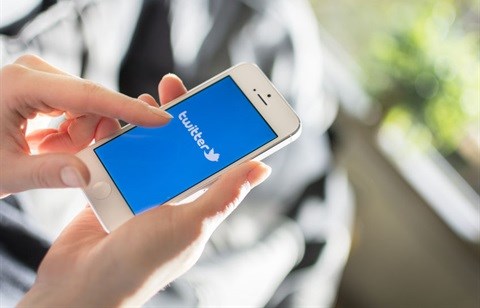
Top stories





Energy & MiningGlencore's Astron Energy gears up with new tanker amidst Sars dispute
Wendell Roelf 13 hours

More news

















Logistics & Transport
Uganda plans new rail link to Tanzania for mineral export boost










Inevitably, as is always the case, when it comes to the sharing of thoughts and ideas, the question has arisen as to whether or not a tweet can be protected, particularly, under the veil of copyright.
Recently, a freelance writer, Olga Lexell (@runolgarun), complained to Twitter that one of her tweets ("saw someone spill their high end juice cleanse all over the sidewalk and now I know god is on my side") was being plagiarised. She argued that, being a freelance writer, who makes a living writing jokes such as this one, her intellectual property was being infringed upon by third parties who copied her joke without giving her credit.
Twitter's response has been to protect Lexell's tweet from being copied by others as if it were their own, by deleting them. But is there any merit in the argument that a tweet could amount to a form of intellectual property?

Some argue that it would be pointless, even petty, to assert copyright in a tweet (and question the practical benefit to be gained in doing so), particularly bearing in mind the nature of Twitter as a social media platform designed to allow its users to follow, share and comment on each other's tweets. Others, like Lexell, argue that their tweets are original thoughts, jokes or expressions, which ought to be protectable in terms of copyright law and, in any event, Twitter's terms of service provide that a user owns his/her own profile and materials. Twitter does not, however, specifically define these as "intellectual property" as the existence, or not, of intellectual property rights such as copyright, is a legal question.
So what guidance may intellectual property law, and of specific interest to us, South African copyright law, provide on this issue?
In terms of South African law, authors of works in which copyright subsists, have an exclusive right to do, or to authorise others to do, certain acts to exploit that work for personal gain or profit. In short, if you are a copyright owner no third party can make reproductions or adaptations of your work without your consent.
This would mean that, if a tweet can be protected by way of copyright, third parties would not be able to copy it without the consent of the author of the tweet.
In South Africa, copyright is an automatic right. It does not require registration. Copyright comes into being as soon as a new work is created and reduced to a material form. This is an important point - the work must be reduced to a "material form" - because no matter how good an idea might be, it is not protected until it materialises into something tangible.
A statement would therefore actually have to be tweeted (and not simply be an idea for a tweet in the mind of the Twitter user), before copyright could potentially subsist.
The Copyright Act of 1978 protects certain categories of works such as, for example, literary, musical and artistic works. A collection or composition of words, letters or numbers, such as an article, letter, novel or poem, would constitute a literary work.
A "work" need not be extremely inventive to enjoy copyright protection but, of course, must also not be entirely trivial. Some individual effort and skill on the part of the author must have gone into the creation of the work for copyright to subsist.
The question of triviality is one that will be particularly relevant when considering the protection of tweets under the law of copyright. Those familiar with Twitter will know that tweets can range from the utterly mundane such as "I ate a cheesy pizza", to profound but well-known quotes, or original expressions of opinion, humour, and poetry, for example.
It is clear that, whilst Twitter can be a forum for sharing entirely pointless information, it can also be a forum for artistic expression. Tweets consisting of trivial statements, or entirely factual content, should not be capable of copyright protection as these are unlikely to be considered original or, bearing in mind that tweets are limited to 140 characters or less, have been the result of any protectable individual effort or skill. To allow monopolies to be gained in respect of ordinary phrases or expressions of fact, by way of the use of a social media platform meant to encourage the sharing of information, would simply not be sensible or, indeed, legally sound.
However, that is not to say that lines of poetry, profound sayings or jokes tweeted by Twitter's own poets, sages and clowns (whether they are professionals or simply social users of the site) cannot be original, involving the personal effort and skill of their authors.
The point is, whilst it boggles the mind how that level of original creativity is reached in 140 characters, it is not to say that it is impossible. Tweets of this nature, being original literary works, would enjoy copyright protection and the social media savvy writer would be able to restrain others from copying his or her tweets. The same reasoning could therefore apply to Lexell's joke.
What is clear is that, whether or not a tweet can amount to a copyright work, protectable in terms of the Copyright Act, is a question that will have to be considered on a case-by-case basis.
The short answer is #itdepends #notalltweetsarecreatedequal.